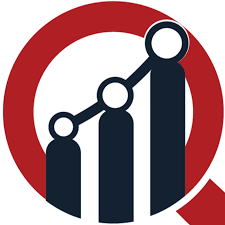The Smart Appliances Market is poised to reshape global living standards by 2035, merging automation, connectivity, and energy efficiency into everyday household operations. With AI, IoT, and sustainability at the core, smart appliances will become intuitive, autonomous systems that learn, adapt, and enhance human convenience, comfort, and control.
Key Trends Shaping the Market by 2035
AI-Powered Predictive Functionality
Smart appliances will utilize machine learning to anticipate user behavior—automatically adjusting performance for optimal energy use, hygiene, and personalized comfort.
Energy Efficiency and Sustainability Mandates
Next-gen appliances will meet stringent global energy standards, using real-time consumption analytics, load sensing, and solar or renewable-powered integrations.
Interoperable Smart Home Ecosystems
By 2035, appliances will seamlessly interact with lighting, HVAC, entertainment, and security systems—powered by open protocols and unified smart home operating systems.
Voice and Gesture Control Normalization
Voice assistants and motion sensors will allow touch-free control, ideal for health-conscious environments and enhanced accessibility.
Autonomous Maintenance and Diagnostics
Smart refrigerators, washers, and ovens will diagnose malfunctions, schedule repairs, or order parts automatically, reducing downtime and boosting user experience.
Key Applications by 2035
-
Smart Kitchens (fridges, ovens, dishwashers)
-
Smart Laundry (washing machines, dryers)
-
Climate Control (ACs, heaters, fans)
-
Health-Integrated Devices (air purifiers, water filters)
-
Home Monitoring and Maintenance Tools
Regional Outlook
-
North America and Europe will lead in luxury smart living and energy-regulated upgrades.
-
Asia-Pacific will dominate in volume adoption, driven by urbanization, digital infrastructure, and middle-class expansion.
-
Emerging markets will show strong adoption through affordable, retrofit-enabled devices.
Key Players
Leading companies in 2035 will include Samsung, LG, Whirlpool, Haier, Electrolux, Bosch, and rising tech-driven disruptors offering AI-first appliances.
Conclusion
By 2035, smart appliances won’t just serve—they’ll think. The global market will evolve into a symphony of AI, automation, and sustainability that redefines the concept of home.
